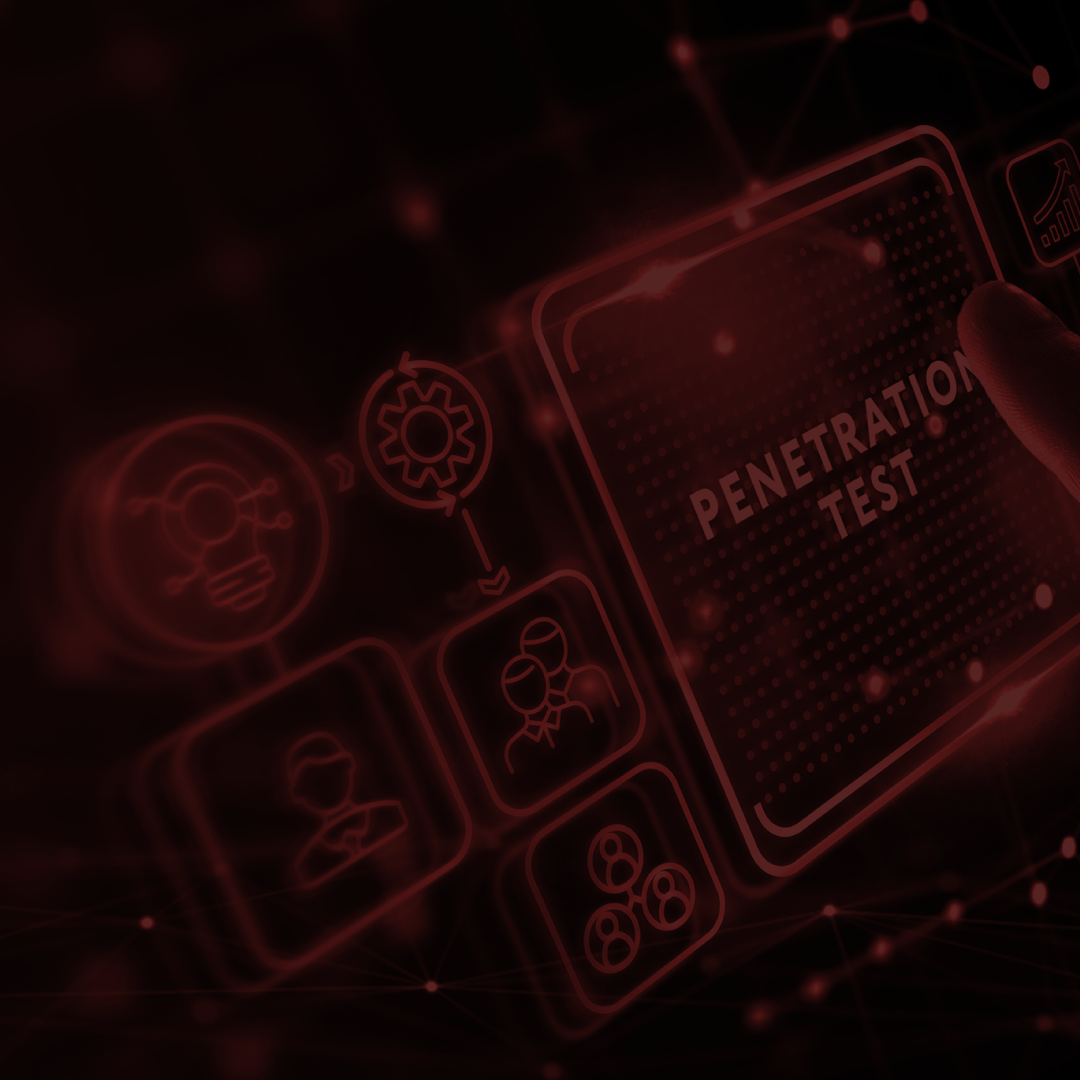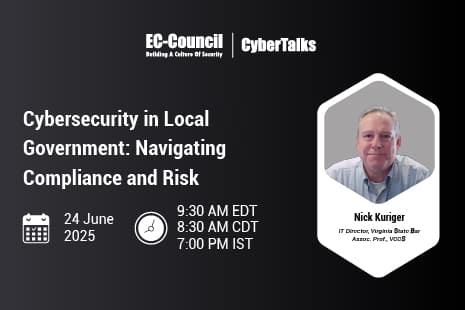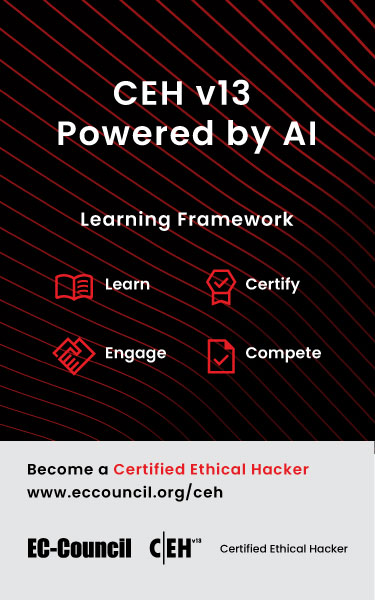Certified Ethical Hacker (C|EH) is a qualification offered by EC-Council that is considered an entry-level certification in cybersecurity. CEH over 20 years is globally recognised and world’s no.1 ethical hacking certification and also world’s first ethical hacking certification powered by AI. C|EH training covers core domains of cybersecurity and Ai-driven cybersecurity skills. CEH also covers a range of topics, from penetration testing to ethical hacking and help in multiple fields from forensic investigations, to SOC, to network engineers, IT managers, and can lead to a number of different job roles in the cybersecurity field.
Is a Career in Cybersecurity in Demand?
Cybersecurity is one of the most in-demand and fastest-growing career fields today. Cybersecurity jobs are expected to increase in the coming years as the number and sophistication of cyberattacks continue to rise. (Central Michigan University, n.d.)
Despite the high demand for cybersecurity workers, there is a significant shortage of qualified candidates (Lake, 2022). This skills gap presents an excellent opportunity for those considering a career in cybersecurity.
There are many reasons why a cybersecurity career is a good choice. It is an exciting field that is constantly evolving, and no two days are ever the same. It is also a well-paid profession, with average salaries far above the national average.
What Are the Careers in Cybersecurity?
A cybersecurity career can offer a challenging and exciting opportunity to make a difference. Here are just a few of the most popular types of cybersecurity jobs:
- Cybersecurity/Information Security Analyst: Identifies potential threats to an organization’s computer systems and networks and develops plans to protect against those threats.
- Cybersecurity Engineer: Designs, implements, and maintains security solutions to protect an organization’s computer systems and networks.
- Cybersecurity Consultant: Advises organizations to protect their computer systems and networks from attack.
Which Is the Best Career in Cybersecurity?
Your abilities, interests, the job market, and future trends should all be taken into account when deciding which cybersecurity career is appropriate for you.
Each role within cybersecurity requires a different skill set. For example, an information security analyst is responsible for identifying security risks and vulnerabilities, while a cybersecurity engineer designs and implements security solutions. A penetration tester tries to find ways to circumvent security controls, while a security architect designs overall security plans. A security operations center analyst monitors and responds to security incidents.
How C|EH Helps You Start Your Career in Cybersecurity?
EC-Council’s Certified Ethical Hacker (C|EH) credential is the perfect way to start your career in cybersecurity. C|EH is a globally recognized standard for ethical hacking and demonstrates your ability to find and exploit vulnerabilities in computer systems. The credential is highly valued by employers and can help you land a job in this growing field.
C|EH covers many topics, including network security, web application security, database security, and more. The exam is challenging, but it is well worth the effort.
How Are the C|EH v13 Modules Mapped to Cybersecurity Job Roles?
The Certified Ethical Hacker version 13 (C|EH v13) program is a comprehensive, hands-on ethical hacking and information systems security course that covers all the latest hacking techniques, tools, and methodologies. The C|EH v13 modules are mapped to specific cybersecurity job roles to provide individuals with the most comprehensive and up-to-date training possible. This allows individuals to gain the skills and knowledge needed to protect organizations from cyberthreats.
The following list includes some of the most common job roles and the corresponding C|EH v13 modules:
Module 1: Introduction to Ethical Hacking
Designed for candidates new to the field of ethical hacking, this module covers the basics of ethical hacking, including its history, definition, and purpose. It also introduces the different types of hackers and their motivations.
Job roles: Security analyst, penetration tester, and security administrator.
Module 2: Footprinting and Reconnaissance
This module covers footprinting techniques that can be used to gather information about a target system or organization and methods for footprinting specific types of systems, such as web servers, email servers, and DNS servers.
Job roles: Security analyst and penetration tester.
Module 3: Scanning Networks
This module covers network scanning techniques that can be used to identify live systems, open ports, and running services. It also covers methods for bypassing firewalls and IDS/IPS systems.
Job roles: Security analyst, penetration tester, and security administrator
Module 4: Enumeration
This module covers enumeration techniques that can be used to gather information about users, groups, and resources on a target system. It also covers methods for gaining access to password-protected resources.
Job roles: Security analyst, penetration tester, and security administrator
Module 5: Vulnerability Analysis
This module covers vulnerability analysis techniques that can be used to identify vulnerabilities in systems and applications. It also covers methods for exploiting vulnerabilities to gain access to systems and data.
Job roles: Security analyst, penetration tester, and security administrator
Module 6: System Hacking
This module covers system hacking techniques that can be used to gain access to systems. It also covers methods for escalating privileges once access has been gained.
Job roles: Security analyst and penetration tester.
Module 7: Malware Threats
This module covers malware concepts and types of malware. It also covers methods for identifying and removing malware from systems.
Job roles: Security analyst, malware analyst, and incident response specialist.
Module 8: Sniffing
This module covers sniffing concepts and methods for capturing and analyzing network traffic. It also covers methods for detecting and countering sniffing attacks.
Job roles: Security analyst, penetration tester, and network administrator.
Module 9: Social Engineering
This module covers social engineering concepts and methods for carrying out social engineering attacks. It also covers methods for recognizing and protecting against social engineering attacks.
Job roles: Security analyst, penetration tester, and security awareness officer.
Module 10: Denial-of-Service (DoS)
This module covers DoS attack concepts, types of attacks, and methods for identifying and mitigating such attacks.
Job roles: Security analyst, network administrator, and system administrator.
Module 11: Session Hijacking
This module covers session hijacking concepts and methods for preventing such attacks.
Job roles: Security analyst, penetration tester, and network administrator.
Module 12: Evading IDS, Firewalls, and Honeypots
This module covers evasion techniques that can be used to avoid detection by IDS, firewall, and honeypot systems. It also covers methods for detecting and countering evasion attacks.
Job roles: Security analyst, penetration tester, and network administrator.
Module 13: Hacking Web Servers
This module covers web server hacking concepts and methods for compromising and securing web servers to protect against attacks.
Job roles: Security analyst, penetration tester, and security analyst.
Module 14: Hacking Web Applications
This module covers web application hacking concepts and methods for compromising and securing web applications to protect against attacks.
Job roles: Security analyst, penetration tester, and web administrator.
Module 15: SQL Injection
This module covers SQL injection concepts, methods for exploiting SQL injection vulnerabilities, and countermeasures that can be used to prevent SQL injection attacks.
Job roles: Security analyst, penetration tester, and database administrator.
Module 16: Hacking Wireless Networks
This module covers wireless hacking concepts, methods for compromising wireless networks and strengthening hardening wireless networks to protect against attacks.
Job roles: Security analyst, penetration tester, and network administrator.
Module 17: Hacking Mobile Platforms
This module covers mobile platform hacking concepts and methods for compromising and strengthening mobile devices and applications to protect them against attacks.
Job roles: Security analyst, penetration tester, and mobile device administrator.
Module 18: IoT and OT Hacking
This module covers IoT and OT hacking concepts and methods for compromising and strengthening IoT and OT devices to protect them against attacks.
Job roles: Security analyst, penetration tester, network administrator, and cyber defense analyst.
Module 19: Cloud Computing
This module covers cloud computing concepts, security issues related to cloud computing, and methods for securing data in the cloud.
Job roles: Security analyst, penetration tester, and cybersecurity consultant.
Module 20: Cryptography
This module covers cryptography concepts, methods for implementing cryptographic solutions, cryptographic attacks, and how to counter them.
Job roles: Security analyst, penetration tester, network administrator, and system administrator.
C|EH is Not Just Pentesting or Ethical Hacking
C|EH is a comprehensive security discipline certification that encompasses all aspects of securing information systems. It covers everything from network security and risk assessment to application security and penetration testing.
Pentesting is an important part of C|EH, but it is only one piece of the puzzle. Ethical hacking is also a vital component of C|EH. Ethical hackers use their skills to help organizations assess and improve their security posture. They do this by identifying vulnerabilities and exploits that attackers could use.
C|EH v13 is Mapped to 49 Job Roles in Cybersecurity
The C|EH v13 program has been mapped to 20 job roles in cybersecurity. Each of these cybersecurity jobs has a specific focus within the cybersecurity field. The 20 job roles that are mapped to the C|EH v13 program are as follows:
- Mid-Level Information Security Auditor: Performs audits of systems to ensure compliance with internal policies and external regulations.
- Cybersecurity Auditor: Conduct information systems audits to ensure compliance with security policies and procedures.
- Security Administrator: Develops, implements, and maintains security measures to protect computer networks and data.
- IT Security Administrator: Oversee the development and implementation of security policies and procedures for an organization’s IT infrastructure.
- Information Security Analyst 1: Monitors organizational compliance with security policies and procedures.
- Infosec Security Administrator: Develop, implement, and maintain security measures to protect an organization’s information assets.
- Cybersecurity Analyst level 1, level 2, & level 3: Performs security analysis of computer systems and networks.
- Network Security Engineer: Design and implement security solutions for computer networks.
- SOC Security Analyst: Analyze data from security monitoring tools to identify potential security threats.
- Network Engineer: Design and implement computer network solutions.
- Senior Security Consultant: Provide expert advice on cybersecurity risk management and mitigation strategies.
- Information Security Manager: Oversees an organization’s development and implementation of security policies and procedures.
- Senior SOC Analyst: Analyze data from security monitoring tools to identify potential security threats and recommend mitigation strategies.
- Solution Architect: Designs and implements solutions for complex technical problems.
- Cybersecurity Consultant: Provide expert advice on cybersecurity risk management and mitigation strategies.
- Cyber Defense Analyst: Analyze network traffic and system logs to identify potential security threats.
- Vulnerability Assessment Analyst: Identify and assess vulnerabilities in computer systems and networks.
- Warning Analyst: Analyzes intelligence information to determine if there are any potential threats to an organization.
- All-Source Analyst : Gathers, analyzes and integrates intelligence data from various sources to identify security threats.
- Cyber Defense Incident Responder : Responds to cyber incidents, analyzing and mitigating security breaches in real time.
- Research & Development Specialist : Researches to develop new cybersecurity solutions and enhance existing technologies.
- Senior Cloud Security Analyst : Manages and secures cloud-based infrastructures to protect sensitive data.
- Third-Party Risk Management : Evaluates and mitigates cybersecurity risks from third-party vendors and service providers.
- Threat Hunting Analyst : Actively searches for and identifies potential security threats within an organization’s network.
- Penetration Tester : Conducts simulated cyberattacks to identify and exploit vulnerabilities in systems and applications.
- Cyber Delivery Manager : Oversees implementing and delivering cybersecurity projects and services.
- Application Security Risk : Assesses and mitigates security risks in software development and application lifecycle management.
- Threat Modelling Specialist : Analyzes potential security threats and develops strategies to mitigate system risks.
- Web Application Penetration Testing : Performs security assessments on web applications to find and exploit vulnerabilities.
- SAP Vulnerability Management – Solution Delivery Advisor : Provides security advisory and management of vulnerabilities in SAP environments.
- Ethical Hacker : Performs authorized hacking activities to identify and fix security vulnerabilities.
- SIEM Threat Responder : Monitors and responds to security alerts generated by SIEM systems, investigating potential threats.
- Product Security Engineer / Manager : Ensures the security of products from design to deployment, overseeing security engineering teams.
- Endpoint Security Engineer : Designs and implements security measures to protect endpoint devices from cyber threats.
- Cybersecurity Instructor : Educates and trains individuals or teams in cybersecurity concepts, tools, and practices.
- Red Team Specialist : Engages in offensive cybersecurity operations to simulate real-world attacks on an organization’s infrastructure.
- Data Protection & Privacy Officer : Ensures compliance with data protection laws and manages the organization’s privacy strategies.
- SOAR Engineer : Develops and maintains Security Orchestration, Automation, and Response (SOAR) solutions to streamline incident response.
- AI Security Engineer : Designs and implements security measures to protect AI systems and data.
- IAM Engineer : Manages Identity and Access Management (IAM) systems, ensuring secure resource access.
- PCI Security Advisor : Provides guidance on meeting Payment Card Industry (PCI) security standards and compliance requirements.
- Exploitation Analyst (EA) : Analyzes and exploits system vulnerabilities to assess security weaknesses.
- Zero Trust Solutions Engineer / Analyst : Designs and implements zero-trust architecture to ensure continuous verification of all resources.
- Cryptographic Engineer : Develops and implements cryptographic solutions to protect sensitive data.
- AI/ML Security Engineer : Secures machine learning models and data, ensuring the integrity and confidentiality of AI systems.
- Machine Learning Security Specialist : Focuses on protecting machine learning systems from adversarial attacks and security breaches.
- AI Penetration Tester : Assesses the security of AI systems by simulating attacks and identifying weaknesses in the algorithms.
- AI/ML Security Consultant : Provides expertise in securing AI and ML systems, advising on risk mitigation strategies.
- Crypto Security Consultant : Specializes in securing cryptocurrency systems and ensuring the safety of blockchain-based transactions.
How Has C|EH Become a Benchmark for Hiring Managers?
C|EH has become a benchmark for hiring managers for several reasons. First, C|EH allows hiring managers to identify potential candidates early in the hiring process. Second, C|EH is an impartial and objective assessment of candidates’ qualifications. Finally, C|EH provides a standardized score that can be used to compare candidates’ qualifications across different organizations.
When used correctly, C|EH can help ensure that only the best candidates are hired for critical positions within an organization. This, in turn, can lead to improved organizational performance and profitability. Therefore, it is no surprise that C|EH is quickly becoming the standard assessment tool for hiring managers worldwide. From a CEH survey reported by thousands of cybersecurity professionals also reported that 92% of hiring managers prefer to hire CEH for job roles related to ethical hacking skills.
With C|EH certification, you’ll have the opportunity to pursue various exciting and challenging job roles.
Sources
Central Michigan University. (2022, October 5). THE IMPORTANCE OF CYBERSECURITY AND ITS BOOMING JOB MARKET. https://www.cmich.edu/news/details/the-importance-of-cybersecurity-and-its-booming-job-market
Lake, S. (2022, June 30). Companies are desperate for cybersecurity workers—more than 700K positions need to be filled. Fortune. https://fortune.com/education/business/articles/2022/06/30/companies-are-desperate-for-cybersecurity-workers-more-than-700k-positions-need-to-be-filled/
About the Author
Ryan Clancy is a writer and blogger. With 5+ years of mechanical engineering experience, he’s passionate about all things engineering and tech. He also loves bringing engineering (especially mechanical) down to a level that everyone can understand. Ryan lives in New York City and writes about everything engineering and tech.











